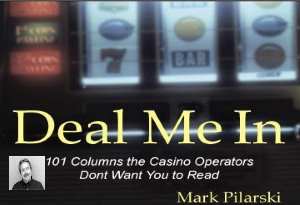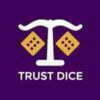By far, my biggest problem in a casino is walking away while ahead. I can double my money over the course of play, but walking away satisfied is another story. In the years you worked the business, is this a common problem? Jim S.
No casino game, Jim, is designed to favor the player. The game rules are designed to give you some gambling pleasure and to give the casino your money. But sometimes the casino’s BIGGEST advantage is not the built-in casino edge, but PLAYER GREED. That’s what keeps players from quitting when they are ahead, and that’s what builds those casino high-rises. Winning can be the easy part, but keeping your winnings depends on your ability to walk.
The casino gives you this opportunity: take your best shot at their money, and walk with it-if you’ve got iron self-discipline. There is no gun to your head, forcing you to give back all your winnings. The reason many people do not quit gambling while they are ahead is that while they are winning they convince themselves, on the basis of an early win, that they’re in the lap of the Gambling Gods. They think they are infallible. “Why stop now?” they ask themselves. Thomas Adams could have defined greed best when he said, “The covetous man pines in plenty, like Tantalus up to the chin in water, and yet always thirsty.”
The proper strategy, Jim, is to set “win goals.” For example, leaving when you are 50-100% ahead is smart money management. It is tough to make that big a return in the Stock Market in two years, so how come you are not satisfied in the casino with that type of gain after a mere two hours of play?
Over the 18 years I worked the business, I saw plenty of winners every single night, but at the end of their gambling session, most hit the door thirsty losers. Losers because they did not know how to get up and walk. They were just irrationally thirsty for more.
Is there any merit to a system in roulette where if red appears three times in a row, you then bet black? The same would hold true with the odd/even wager on the game. Ted D.
None Ted, and these three words are the reason: “independent trials process.” Mathematicians use this expression to describe random games that are not influenced by past outcomes, nor influenced by future performance. The spin and bounce of the roulette ball is a perfect example of a random event, in that every slot in the wheel has exactly the same chance that the ball will lodge there.
Neither slot nor ball knows that red appeared last, nor that black will be the next color called. None of the tools of gambling (roulette ball, cards, dice) has either memory or consciousness. They are inanimate tools of the trade that cannot make choices. All but the Queen of Spades-if she winks at you.
Exactly what is a marker? Alice B.
A marker is essentially a sight draft, written against a sum of money deposited by a patron in a casino cage account, and used to buy chips in a table game. When asked for an X-dollar marker, the pit boss takes the requester’s name, calls the casino cage to confirm the account status, then writes out a marker for the X dollars. The patron signs the marker, get his X dollars worth of chips, and the cage then deducts the X dollars from the patron’s account, establishing a new and lower remaining balance.
Gambling thought of the week: “With the perverse logic of a degenerate gambler he figured God was testing his faith.” -Mario Puzo, Inside Las Vegas




















